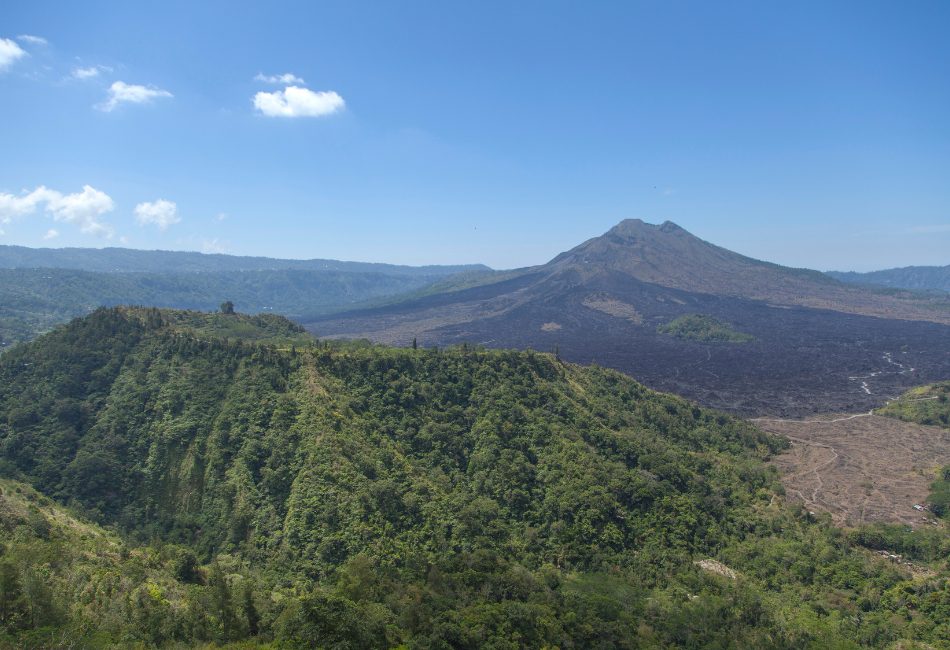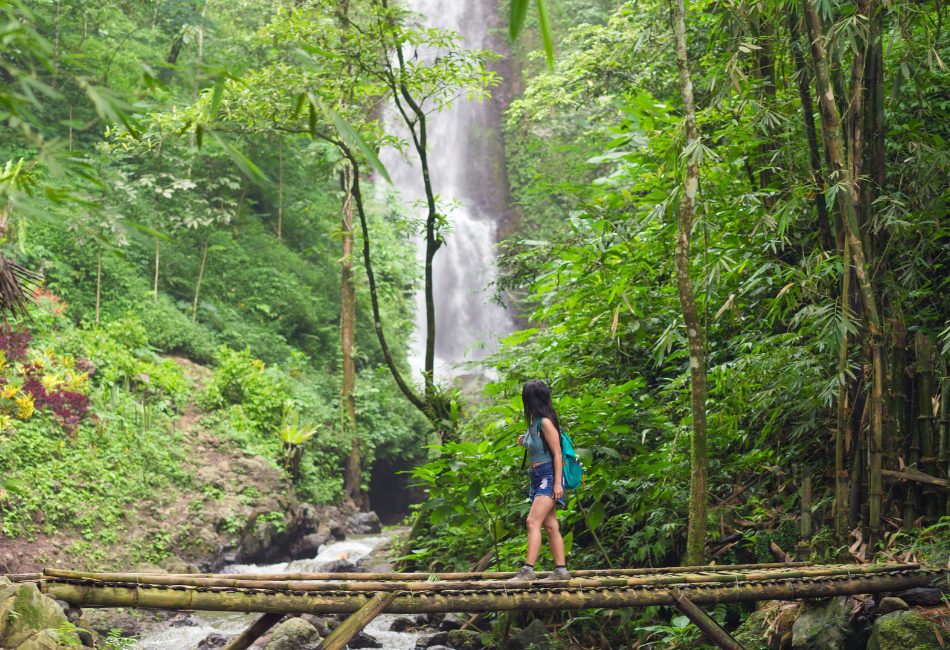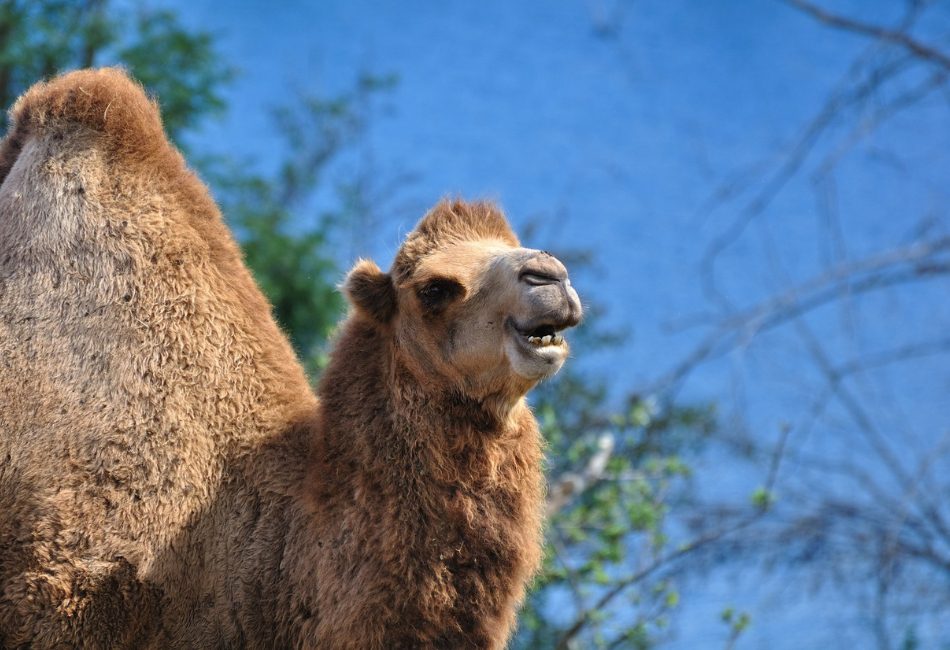The Toraja people, an ethnic group from the highlands of Tana Toraja on Sulawesi Island, Indonesia, approach death with reverence and celebration. Their unique practices treat deceased relatives as if they are still alive, keeping them at home until extravagant funerals are held to honor their memory.
Unlike Western perspectives on mortality, they believe death is an essential element of living, in they take great care to honour the dead to facilitate their transition to the afterlife.
Preparing for a funeral is a lengthy process, and the dead bodies remain in their family homes until the time of the funeral. During this time, their relatives dress them, feed them, and swat away the flies from their rotting skin.
The elaborate Rambu Solo funerals reflect the Torajans’ profound respect for their ancestors. Let’s delve deeper into this fascinating culture and its unique rituals.

Introduction to Toraja Culture
The Toraja people are native to the mountainous region of Tana Toraja, where lush landscapes and traditional architecture define their identity.
Central to their culture are the Tongkonan, traditional boat-shaped houses that symbolize familial heritage and the connection between the physical and spiritual worlds. These structures, with their towering arched roofs and intricate carvings, serve as sacred spaces for ceremonies, discussions, and rituals.
The Toraja maintain their cultural identity through practices steeped in Aluk Todolo, their ancestral belief system. This philosophy governs all aspects of life, from everyday interactions to intricate funeral rites. Rituals such as Rambu Solo and Ma’nene emphasize the interconnectedness of the living and the dead, reinforcing the community’s spiritual harmony.
Toraja Death Ritual: Rambu Solo
The Rambu Solo funeral is not just a farewell—it is a grand celebration of the deceased’s life. These ceremonies can take months or even years to prepare, as families raise the funds needed to reflect the deceased’s social status.
At the core of Rambu Solo lies the belief that proper rituals guide the deceased’s soul to Puya, ensuring peace for both the spirit and the family. Elements of the ceremony include:
- Animal sacrifices: Buffaloes and pigs are offered to facilitate the deceased’s journey to the afterlife. The number of animals sacrificed symbolizes social rank and family devotion.
- Traditional music and dances: Performances bring together the community to honor the deceased’s legacy.
- Family gatherings: Extended family members travel from afar to participate, strengthening communal bonds.
The ritual reflects the values of Aluk Todolo, emphasizing balance and respect between the living and the spiritual realms.
Who Are The Toraja?
Hundreds of thousands of Toraja people live in the South Sulawesi region of Indonesia, the country’s geographical centre. The area is mountainous and tropical, and daily downpours and high temperatures are routine.
Torajans had little contact with the outside world until the Dutch occupied their territory in 1906.
Torajans believe that their forefathers were heavenly creatures who came to earth using a heavenly staircase. This is more important than anything else.
The Torajan people live in small villages in the Sulawesi highlands, where dirt roads link them. Tongkonan, the unique houses, are particularly renowned. Their tall, arched roofs are supported by stilts and decorated with carvings.
Toraja’s life is dominated by family connections, and the tongkonan is the hub where virtually everything of significance occurs. Government affairs, weddings, and religious ceremonies are just a few of the many facets of Toraja culture that are centred on this unique structure.
Torajans’ unique treatment of the dead, however, is what truly sets them apart.
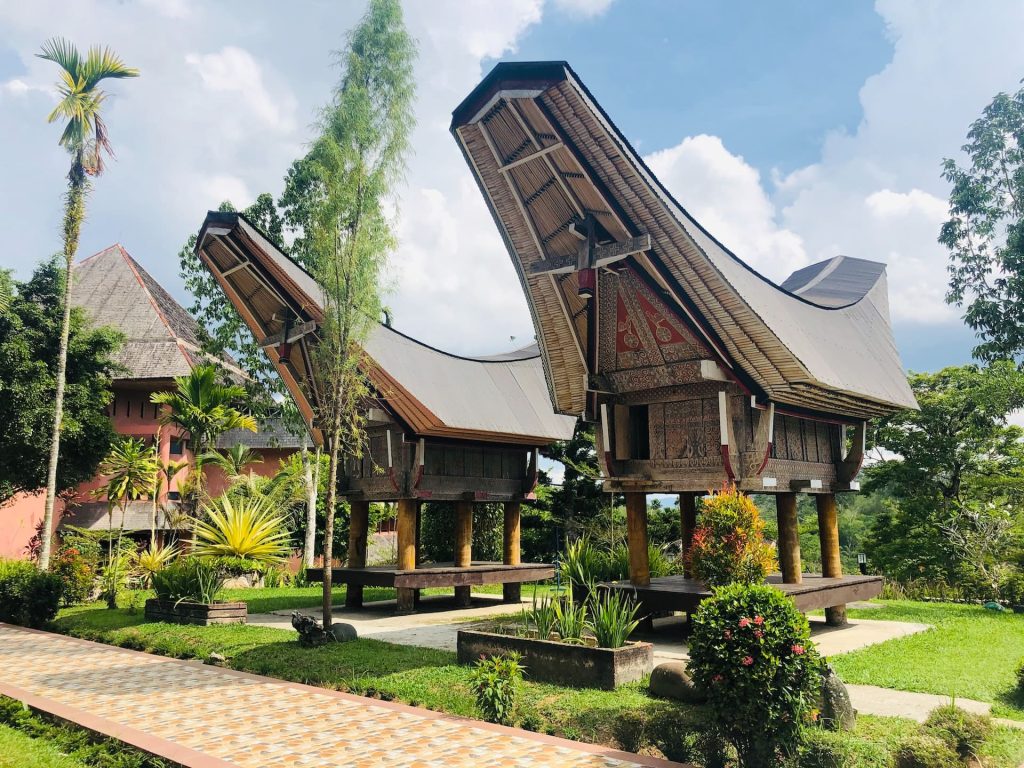
Living Among The Dead
Toraja people place great importance on funerals, and death is their primary concern. Family members are cared for until a funeral can be arranged, often for weeks or even years after their death.
When a person dies, they are referred to as makula’, meaning a sick person, rather than dead. Family members continue to care for the deceased by dressing them, feeding them, and preserving the body with a mixture of formaldehyde and water. This practice continues until sufficient funds are raised for a proper funeral. The Toraja believe this ensures the deceased remains part of the family, and it underscores their profound respect for the dead.
Keeping and caring for a dead body in the house for weeks or even years might seem unfathomable to Westerners, but in Torajan culture, it is routine.
Before they are interred, the bodies of the deceased are preserved using a mixture of formaldehyde and water. During this time, the Bible is read daily.
When sufficient money has been raised and all relatives have been notified, the family begins funeral and burial preparations. Funerals are a visible sign of social status among Torajans. People frequently go into debt to provide a dignified burial for their relatives out of respect for the deceased. In addition, a man might refuse to marry if he believes his would-be bride has a family member who may soon pass away.

Cliffside Tombs
On the final day of the Rambu Solo funeral, families transport the deceased to their eternal resting place, an awe-inspiring cliffside tomb or ancestral funeral tower. These tombs, carved into rugged cliffs by skilled specialists, often stand as high as 100 feet above the ground. Without using safety equipment, these experts etch out burial spaces, where the height of the tomb symbolizes the social status and prominence of the individual.
For infants who pass away before they begin teething, the Toraja practice a unique tradition of placing them in “baby trees.” These hollowed trunks are believed to absorb the child’s spirit, symbolizing renewal and the continuation of life as the tree grows.
Adorning these tombs are tau tau effigies, life-sized wooden or bamboo statues that represent the deceased. Positioned on balconies outside the tombs, tau tau serve as guardians of the spirit world, standing watch over the family and the land.
Families often invest heavily in creating detailed tau tau to honor their loved ones, making them works of art and devotion. However, due to their significant cost and value, some families choose to keep these effigies at home to prevent theft, ensuring their cultural legacy remains safe.
Ma’nene Ritual: Refreshing The Dead
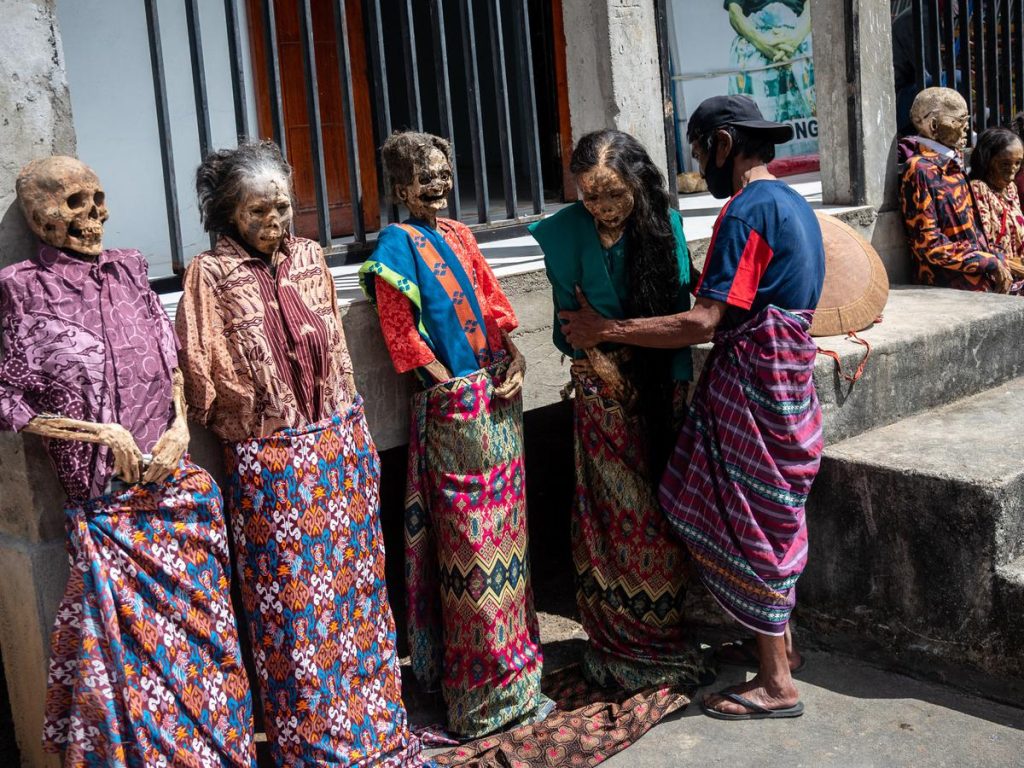
Years after burial, the Toraja observe the Ma’nene ritual, an act of respect and love for their ancestors. During this ceremony, families exhume the bodies of their deceased relatives, clean them, and dress them in fresh garments. The event is a celebration of continuity, reaffirming the unbroken bond between the living and the dead.
Key elements of Ma’nene include:
- Preservation: Families inspect how well the body has been preserved, as it is considered a blessing.
- Community involvement: Relatives from near and far gather to reconnect with their ancestors.
- Symbolic renewal: Dressing the deceased reflects the family’s ongoing care and devotion.
The Ma’nene ritual highlights the Torajans’ enduring respect for their forebears and their belief in the cyclical nature of life and death.
Key Takeaways of Toraja Death Ritual
There is no fear of death among the Torajans, who believe that the dead never truly leave them. Because death is seen as just another phase of life, families don’t try to keep their sick members alive as long as possible via modern medical techniques. Rather, they allow them to pass away naturally.
Ready for an amazing trip to Tana Toraja or Sulawesi? Well, browse through our Sulawesi tour packages to find the right one for you! Traveling with friends, or family, or going solo? Whatever it is, our team is ready to help you make the best of your trip.


